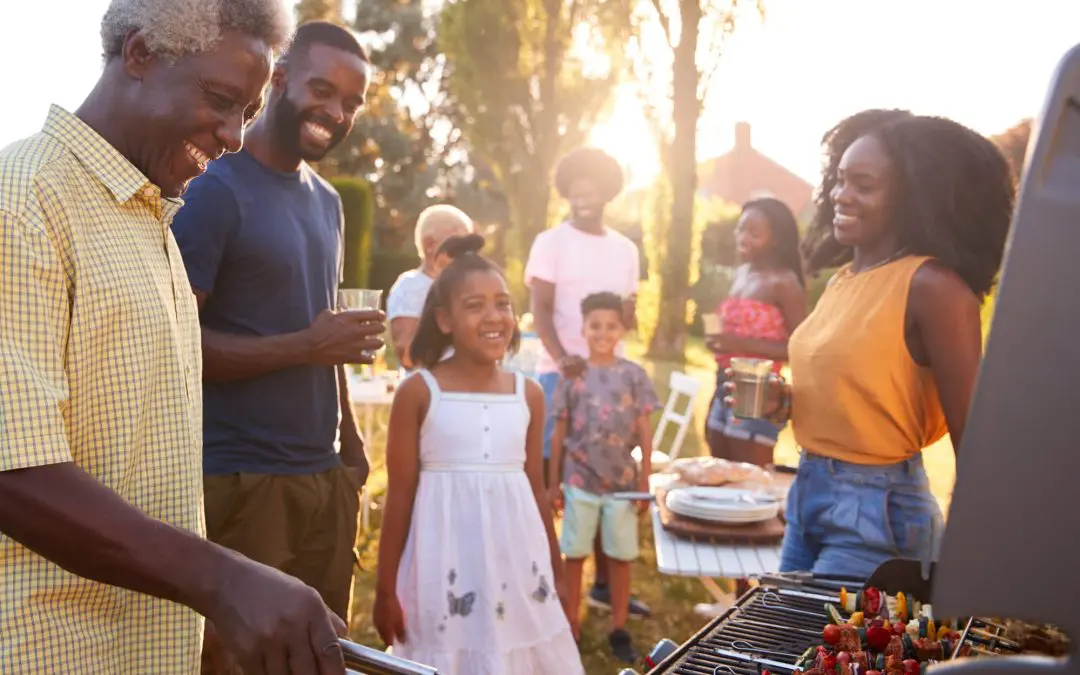As the warm weather approaches, many of us are eager to fire up the grill and indulge in a delicious barbecue. Whether it’s a casual backyard gathering or a weekend cookout with friends and family, grilling is a quintessential part of summer. However, amidst the excitement of cooking outdoors, it’s crucial to prioritize grill safety to prevent accidents and ensure an enjoyable time for everyone involved. Here are some essential tips to help you grill safely.
Choose the Right Location for Grill Safety
When setting up your grill, place it on a flat, stable surface. Keep it at least 10 feet away from obstacles like trees, overhanging branches, and your house. Close contact with combustible materials increases the risk of fire.
Inspect Your Grill
Before using your grill, scrutinize it for any signs of damage or wear and tear. Check the gas connections for leaks if you’re using a gas grill, and ensure the burner jets are clean and free from blockages.
Keep Children and Pets Away
While grilling, it’s essential to establish a safety zone around the grill and keep children and pets at least three feet away. Consider setting up physical barriers or using visual markers to delineate the safe area.
Use Proper Lighting for Grill Safety
If you’re using a gas grill, always follow the manufacturer’s instructions for lighting it safely. Avoid using matches or lighters to check for leaks, which can lead to accidents. Invest in a long-handled lighter specifically designed for grills.
Monitor the Grill
Never leave your grill unattended while it’s in use. Keep a close eye on the cooking process and be prepared to act quickly in case of flare-ups or other emergencies. Have a fire extinguisher nearby and familiarize yourself with how to use it.
Don’t Forget Safe Food Handling is Part of Grill Safety
Prevent foodborne illnesses by following proper food safety protocols. Keep raw meat, poultry, and seafood separate from cooked food and fresh produce. Use separate utensils and cutting boards for raw and cooked items, and always cook meat to the recommended internal temperature using a meat thermometer.
Clean Your Grill Regularly
Regular maintenance is key to ensuring the safety and longevity of your grill. Clean the grill grates and grease traps after each use to prevent flare-ups and reduce the risk of grease fires. Remove any built-up residue or debris that can impede airflow and affect the grill’s performance.
Be Mindful of Carbon Monoxide
When using a charcoal or gas grill, be aware of the potential for carbon monoxide (CO) buildup, especially in enclosed or poorly ventilated spaces. Never grill indoors or in garages, and always place the grill in a well-ventilated area to allow for proper airflow.
Fire Safety is Fundamental in Grill Safety
In case of a grease fire or flare-up, never use water to extinguish the flames, as it can cause the fire to spread. Instead, close the grill lid and turn off the burners to smother the fire. If using a charcoal grill, carefully remove the food and close the vents to cut off the oxygen supply. Then, cover the grill with the lid.
Follow the Manufacturer’s Guidelines
Always adhere to the manufacturer’s guidelines and instructions for safe grilling practices. These guidelines are designed to ensure your grill’s optimal performance and safety, so it’s essential to familiarize yourself with them before using your grill.
By following these essential tips for grilling safely, you can enjoy a delicious barbecue with peace of mind, knowing that you’ve taken the necessary precautions to protect yourself, your loved ones, and your property. So fire up the grill, savor the flavors of summer, and make lasting memories with friends and family—all while keeping safety front and center.
Grilling FAQs
How can I prevent my food from sticking to the grill grates?
Preheat your grill and oil the grates before cooking. Ensure your food is adequately dry, and don’t flip it too frequently.
Gas or charcoal: Which is better for grilling?
The choice between gas and charcoal is a personal preference. Gas grills offer convenience and quick heat control, while charcoal grills provide a smokier flavor and higher temperatures for searing.
What are the essential tools needed for grilling?
Essential grilling tools include a grill (gas or charcoal), tongs, spatula, grill brush, meat thermometer, and heat-resistant gloves.
What are some common grilling mistakes to avoid?
Common mistakes include overcrowding the grill, flipping food excessively, not preheating the grill properly, and not letting meat rest after cooking.
JW Goad Home Inspections provides professional home and commercial inspections to customers in Clarksville and the surrounding areas in Tennessee and Kentucky. Contact us to schedule an appointment for our services.

